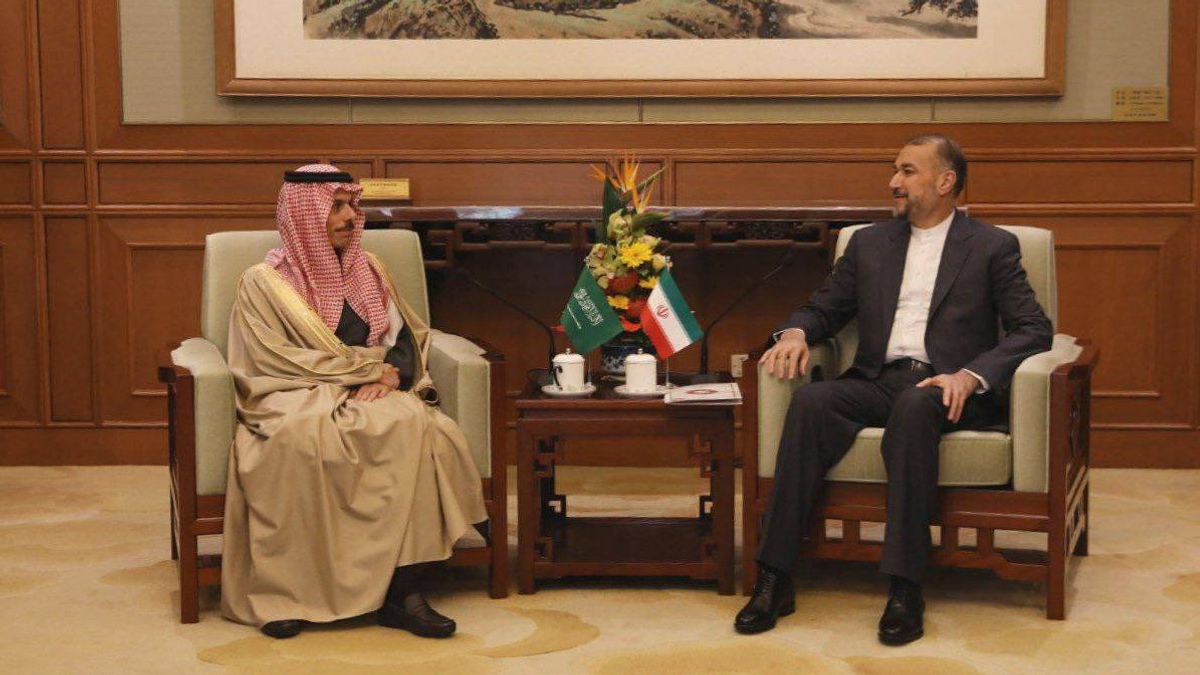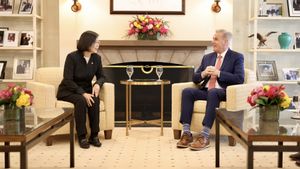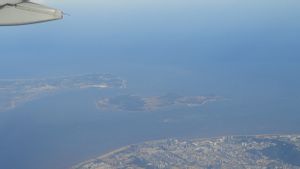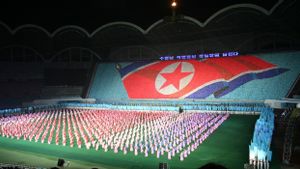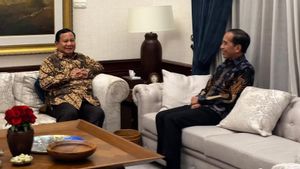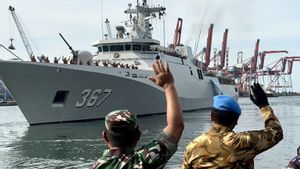JAKARTA - The foreign ministers of Iran and Saudi Arabia met in Beijing on Thursday, the foreign ministers' first official meeting in more than seven years, after China brokered a deal to restore ties between major powers in the region.
After years of animosity that fueled conflict across the Middle East, Iran, and Saudi Arabia agreed to end the rift, reopening diplomatic missions in a landmark deal facilitated by Beijing last month.
In brief, footage broadcast on Iranian state TV, Prince Faisal bin Farhan Al Saud and his Iranian counterpart, Hossein Amirabdollahian, greet each other before sitting side by side.
Saudi Arabia and Iran, the two dominant Sunni and Shiite Muslim powers in the Gulf respectively, said in a joint statement they would launch arrangements to reopen embassies and consulates within the two-month timeframe set out in the deal.
"The technical team will continue coordination to examine ways of expanding cooperation, including the resumption of flights and bilateral visits of official and private sector delegations and facilitating the granting of visas to nationals of both countries," they said, launching Reuters April 6.
امروز با همکارم امیر فیصلبنفرحان در پکن دیدار و گفتگویی مثبت داشتیم. شروع روابط رسمی دیپلماتیک تهران -ریاض، از سرگیری حج عمره، همکاری اقتصادی و تجاری، بازگشایی سفارتخانهها و سرکنسولگریها و تاکید بر ثبات، امنیت پایدار و توسعه منطقه، موضوعات مورد توافق و دستور کار مشترک است. pic.twitter.com/PyGhThc2dg
— H.Amirabdollahian امیرعبداللهیان (@Amirabdolahian) April 6, 2023
In a tweet, Amirabdollahian said Thursday's meeting with his Saudi counterpart was "positive", adding that the "continued emphasis on stability and security" was one of the issues agreed upon and "on the common agenda".
Meanwhile, during a meeting with Iranian and Saudi Arabian envoys, Chinese Foreign Minister Qin Gang said Beijing supports countries in the Middle East to uphold their strategic independence, eliminate outside "meddling" and keep the region's future in their hands. Alone.
In March, Chinese President Xi Jinping helped broker this surprising deal, in a show of Beijing's growing influence in the Middle East. China's role in this breakthrough is shaking up the dynamics in a conflict-ridden region, where the United States has for decades been the main mediator.
Riyadh and Tehran's detente could help stabilize the Middle East, where both sides have backed sectarian proxy forces that are in a position to wage war.
Tehran and Riyadh, according to a joint statement, underlined the importance of reviving the security pact signed in 2001, in which the two sides agreed to cooperate on tackling terrorism, drug smuggling, and money laundering, as well as the trade and technology pact from 1998.
Saudi Arabia severed ties with Iran in 2016 after its embassy in Tehran was stormed, during a dispute between the two countries over Riyadh's execution of a Shia cleric.
SEE ALSO:
Relations had started to sour a year earlier, after Saudi Arabia and the United Arab Emirates intervened in the Yemen war, in which the Iran-allied Houthi movement toppled the Riyadh-backed government and took over the capital Sanaa.
It remains unclear whether this restoration of diplomatic ties will help push for peace in Yemen, where Saudi Arabia has been holding tough talks with the Houthis for a permanent ceasefire.
However, this rapprochement could mean increased security for Saudi Arabia which is pursuing a Vision 2030 project to modernize and diversify its long oil-reliant economy.
فيديو | موفد #الإخبارية إلى بكين عبد الله الرويس: لقاء يجمع وزير الخارجية الأمير فيصل بن فرحان ووزير الخارجية الإيراني حسين أمير عبد اللهيان pic.twitter.com/rz80Vz7VAB
— قناة الإخبارية (@alekhbariyatv) April 6, 2023
The English, Chinese, Japanese, Arabic, and French versions are automatically generated by the AI. So there may still be inaccuracies in translating, please always see Indonesian as our main language. (system supported by DigitalSiber.id)
